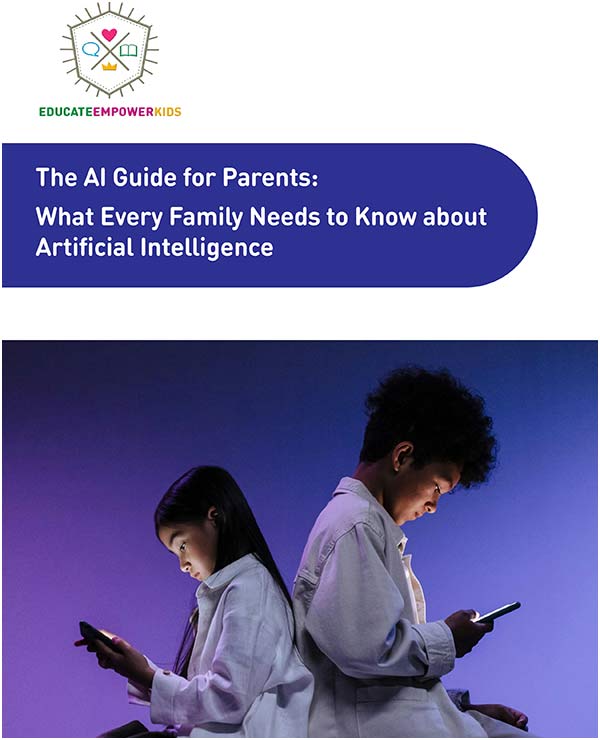Dina Alexander, MS
TikTok has become one of the most popular social media platforms in recent years, especially among younger users. While it can be a source of entertainment and creative expression, there are serious concerns about the app's impact on children's mental health and well-being. Here are some reasons why TikTok may be unhealthy for kids.
- Exposure to Inappropriate Content
TikTok's algorithm uses machine learning to personalize the content that each user sees. While this can be a useful feature for adults, it can also easily expose children to inappropriate content. The app's content moderation policies have been criticized for not doing enough to prevent the spread of harmful or offensive material. Because of these inefficient policies, parents have reported that their children have been exposed to explicit language, sexual content, and other inappropriate material while using TikTok.
- Addiction and Obsession
Like other social media platforms, TikTok is designed to keep users engaged for as long as possible. Its algorithm encourages users to spend more time on the app by showing them an endless stream of content tailored to their interests. This can lead to addiction and obsession, especially among younger users who are more susceptible to these behaviors. Kids may spend hours scrolling through TikTok, neglecting their friends, family, homework, chores, and other responsibilities.
- Comparison and Self-esteem Issues
TikTok is full of highly curated content that often features people who appear to have perfect lives, bodies, and personalities. This can create unrealistic expectations and lead to comparison and self-esteem issues among children. Kids may feel pressure to look and act a certain way to fit in with their peers or gain more followers. This can be damaging to their mental health and well-being, especially if they don't have a strong sense of self-esteem to begin with.
- Cyberbullying and Online Harassment
Along with the issues with moderation policies, TikTok has also been criticized for not doing enough to prevent cyberbullying and online harassment. Kids may be subjected to hurtful comments, threats, and other forms of harassment while using the app, which can have a devastating impact on their mental health and well-being. Bullying and harassment like this can lead to things like depression, anxiety, and other mental health issues. Parents may not be aware of the extent of cyberbullying and harassment that their children are experiencing on TikTok.
- Privacy and Safety Concerns
Lastly, TikTok has faced criticism for its data privacy and security practices. The app collects a significant amount of personal information from users, including their location, device information, and browsing history. This has raised concerns about the app's potential to be used for targeted advertising and other forms of exploitation. Along with these, there are many risks associated with their children using TikTok and the potential for their personal information to be compromised.
TikTok can be an entertaining and creative platform, but it also poses significant risks to children's mental health and well-being. Stay informed and be aware of the potential dangers and take steps to protect your children, such as setting limits on screen time and monitoring their online activity. All the while, have open and honest conversations about the risks and benefits of using social media and how to behave appropriately when engaging online. Think critically about how you and your partner can be proactive and vigilant. Together, decide if the benefits of Tik Tok outweigh the risks, and seriously consider if any social media platform is “safe enough” for your child.
For amazing discussions and activities that help you and kids stay connected, check out Conversations with My Kids: 30 Essential Family Discussions for the Digital Age--A simple, super-helpful guide that gives YOU the words to talk about timely, sometimes tough, topics of today (like algorithms, changing technologies, social media, healthy sexuality, LGBTQI issues, and much more).

Dina Alexander is the founder of Educate and Empower Kids, an organization determined to strengthen families by teaching digital citizenship, media literacy, and healthy sexuality education—including education about the dangers of online porn. She is the creator of How to Talk to Your Kids About Pornography and the 30 Days of Sex Talks and 30 Days to a Stronger Child programs. She is also the author of Noah’s New Phone: A Story About Using Technology for Good and Petra’s Power to See: A Media Literacy Adventure. Most recently she has published The Powers of Heaven: A Priesthood Guide for Latter-day Saint Girls and Boys and This is the Spirit of Revelation for Latter-day Saint children and their families and Conversations with My Kids, 30 Essential Family Discussions for the Digital Age. She received her master’s degree in recreation therapy from the University of Utah and her bachelor’s from Brigham Young University. She loves being a mom and spending time with her three kids. Together, they live in New Mexico.

